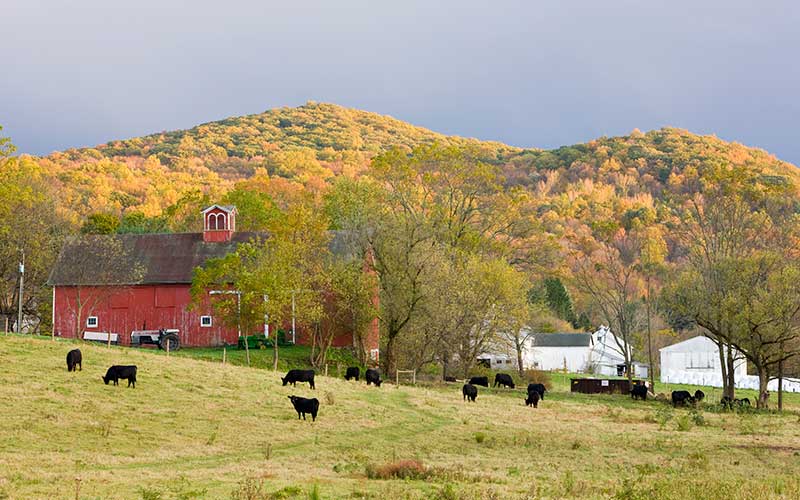
CLF's Legal Food Hub has expanded to Connecticut to support local farmers and food businesses.
March 1, 2018 (New Haven, CT) — Conservation Law Foundation (CLF) launched its Legal Food Hub in Connecticut today at a networking breakfast attended by the Commissioner of Agriculture Steven Reviczky and State Representative James Albis. Recognizing the role of farmers and food businesses in the economic and environmental health of Connecticut communities, the Legal Food Hub is the first of its kind network that connects smaller-scale farmers, food businesses, and food-related organizations with pro bono legal services to help start, grow, and operate their businesses.
“Local farmers and food businesses are at the heart of a healthy and thriving community,” said Jenny Rushlow, Director of Farm and Food, Conservation Law Foundation. “A sustainable food system is essential to the health, environment, and economic growth of our communities in Connecticut and throughout New England.”
CLF launched the Connecticut Legal Food Hub in partnership with the Ludwig Center for Community and Economic Development and the Environmental Protection Clinic at Yale Law School. The clinics wrote a legal guide for lawyers representing Connecticut farms and food businesses. This represents the third statewide guide published for the Legal Food Hub network. There are currently Hubs in Massachusetts, Maine, and Rhode Island with plans to launch the program throughout New England and nationally.
“Legal Food Hub comes to Connecticut at a critical time for our state’s agriculture industry,” said State Rep. James Albis “The average age of farmers in Connecticut is 59 years old – retiring farmers will need help in succession planning to make sure their farms are being preserved, and entrepreneurial farmers will need help getting started as many farms transition from one owner to the next. Legal Food Hub can help fill the inevitable legal needs of farmers new and retiring alike.”
The Ludwig Center at Yale Law School has been advancing food justice by representing farms, farmers’ markets, small businesses, and community groups for over two decades.
“I have learned much substantively from working in the area of food law,” said Lauren Hobby, Clinic Student. “For food businesses to grow, they need smart and creative lawyering, especially because this is a highly regulated and price-sensitive sector.”
Through the Legal Food Hub, CLF connects eligible participants with a large network of experienced attorneys who offer legal services pro bono. The goal of the Hub is to help build a more resilient and just local food system for Connecticut and all of New England.
“The Legal Food Hub has been an essential tool as we move from a grassroots organization to a state-wide, member driven non-profit,” said Joey Listro, New Connecticut Farmer Alliance. “Our new partnership with the Hub will allow us to bring crucially needed legal support to our 200 member-farmers.”
One study found that only 10% of surveyed farmers use legal services, in contrast to 70% of small businesses in general. There are numerous legal needs associated with starting a farm or business, acquiring land, entering into contracts, transferring land to family members, and other essential business matters. Some farmers and food entrepreneurs who cannot afford the associated legal fees either go without or pay more than they can afford, harming other aspects of their business’ economic viability. In the worst-case scenario, farmers or food entrepreneurs lose their business or leave the field due to these and other financial hurdles.
###
